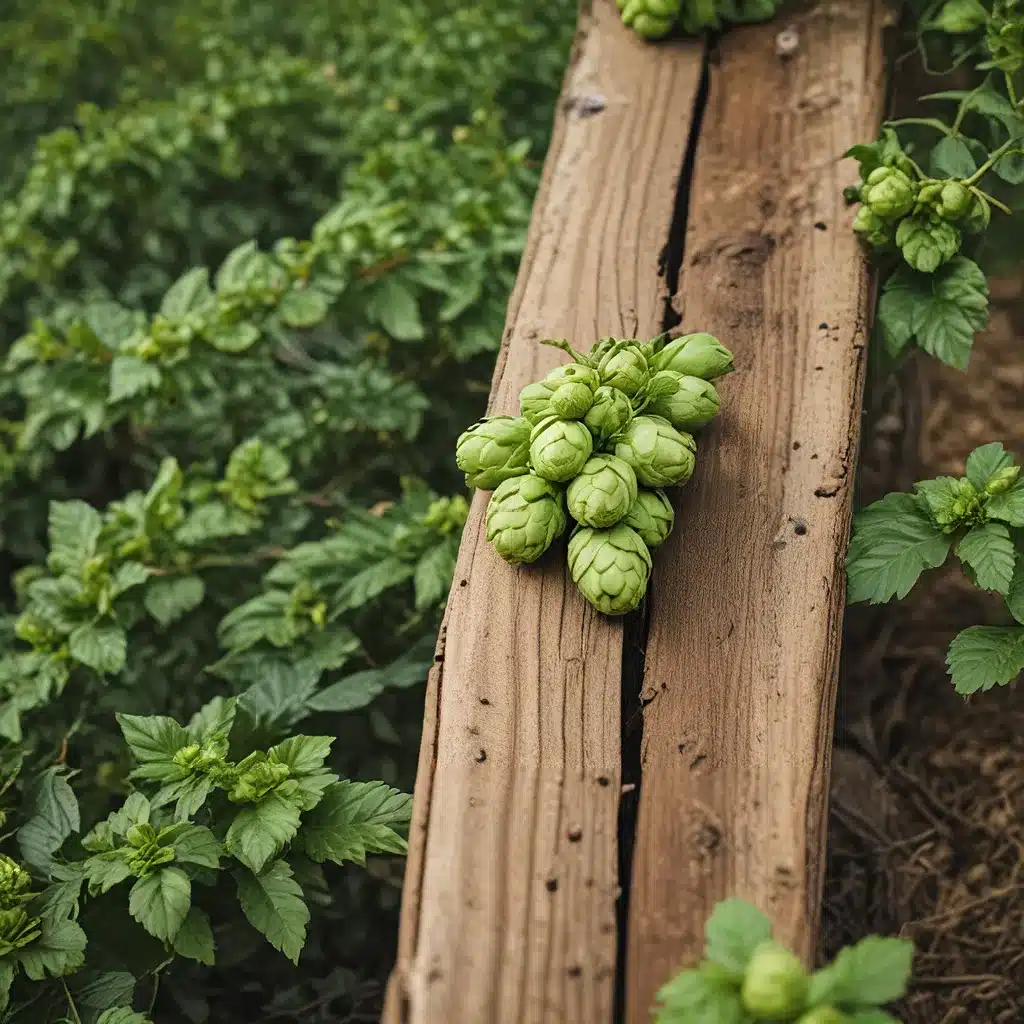
The Craft Beer Revolution: A Hop-Fueled Transformation
As I stroll through the bustling aisles of my local craft beer emporium, I can’t help but marvel at the sheer abundance of options. Gone are the days of the mass-produced lagers that once dominated the scene. In their place, a veritable kaleidoscope of flavors and aromas beckons, each bottle or can a unique expression of the brewer’s art. But what’s truly fascinating is the story behind this craft beer revolution – and how it’s reshaping the world of sustainable agriculture.
The Thirst for Hops
At the heart of this transformation lies the humble hop, the fragrant flower that imparts bitterness, aroma, and a whole lot of personality to our beloved brews. As craft beer enthusiasts have become increasingly discerning, the demand for hop-forward beers has skyrocketed. And with this surge in popularity, hop growers have been thrust into the spotlight, tasked with meeting the insatiable thirst of the craft beer movement.
Yakima Chief Hops, a pioneering hop supplier, has been at the forefront of this evolution. With over 30 years of experience, they’ve become more than just a hop provider – they’re true partners to the brewing community, offering innovative solutions and a steadfast commitment to sustainability.
The Hop Farmer’s Dilemma
But the path to sustainable hop production hasn’t always been a smooth one. As the craft beer industry has boomed, hop growers have been faced with a daunting challenge: how to scale up production without compromising the land and resources that are the lifeblood of their operations.
“It’s a delicate balance,” explains Bruce Davidson, the fourth-generation owner of 3D Farm and BC Hop Farm in Oregon. “We need to meet the growing demand for our products, but we can’t do it at the expense of the environment. That’s why sustainability has become such a driving force in our business.”
Embracing Sustainable Practices
For the Davidson family, sustainability isn’t just a buzzword – it’s a way of life. At their farms, they’ve implemented a host of eco-friendly initiatives, from utilizing solar power to processing hop plant waste into nutrient-rich compost. This holistic approach to agriculture has not only reduced their environmental impact but has also yielded tangible benefits for their crops.
“The hops we grow are a direct reflection of the land they come from,” Bruce explains. “By caring for the soil and minimizing our carbon footprint, we’re able to produce hops with a unique terroir – flavors and aromas that are distinctly ours.”
The Power of Transparency
Transparency has also been a key pillar of Yakima Chief Hops’ business model. Through their online portal, brewers can easily access detailed information about the provenance of their hop products, including the family farms from which they were sourced and the sustainable practices employed in their cultivation.
“We want our customers to know the story behind every hop they use,” says the Yakima Chief Hops team. “By sharing this information, we’re not just selling a commodity – we’re inviting brewers to be a part of the journey towards a more sustainable future for our industry.”
The Craft Beer Consumer’s Role
But the sustainability story doesn’t end with the hop growers and suppliers. The craft beer drinkers themselves have a crucial role to play in shaping the future of this industry.
“As consumers, we have the power to vote with our dollars,” says Sarah, a passionate craft beer enthusiast. “When we choose to support breweries that prioritize sustainable practices, we’re sending a clear message that this is the kind of future we want to be a part of.”
The Cascading Benefits of Sustainable Hops
The benefits of this shift towards sustainable hop production extend far beyond the brewery walls. By embracing eco-friendly farming methods, hop growers are helping to preserve the delicate balance of local ecosystems, protecting vital habitats and ensuring the continued health of the land for generations to come.
“It’s about more than just the hops,” Bruce explains. “When we take care of the soil and the surrounding environment, we’re safeguarding the entire web of life that depends on it. That’s the true power of sustainable agriculture.”
The Craft Beer Pub: A Hub for Sustainability
As I sip my latest hop-forward concoction at The Up & Under Pub, I can’t help but feel a sense of pride and excitement about the role that craft beer establishments are playing in this sustainable revolution.
“We’re not just a place to grab a drink,” says the pub’s owner, Alex. “We’re a hub for the local community, a gathering place where people can come together to celebrate the very best of what our region has to offer – including the incredible hops and the farmers who grow them.”
The Road Ahead
The craft beer industry’s embrace of sustainable agriculture is more than just a passing trend. It’s a fundamental shift in the way we think about the production of our favorite beverages, one that has the power to transform the world around us.
As I leave the pub, my mind buzzes with the possibilities. Who knows what the future may hold? But one thing is certain: as long as there are passionate hop growers, innovative brewers, and conscientious consumers, the craft beer revolution will continue to reshape the landscape of sustainable agriculture, one delicious sip at a time.

